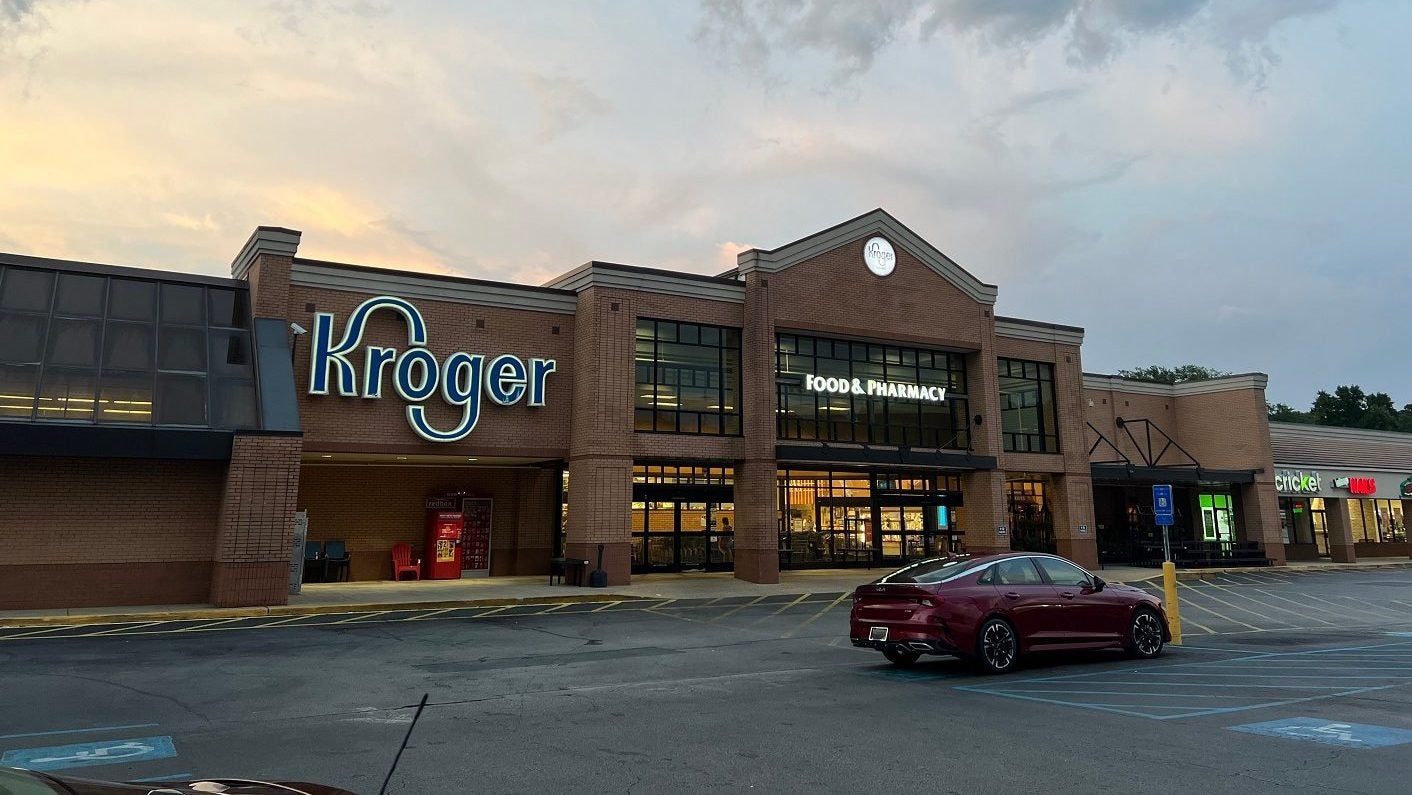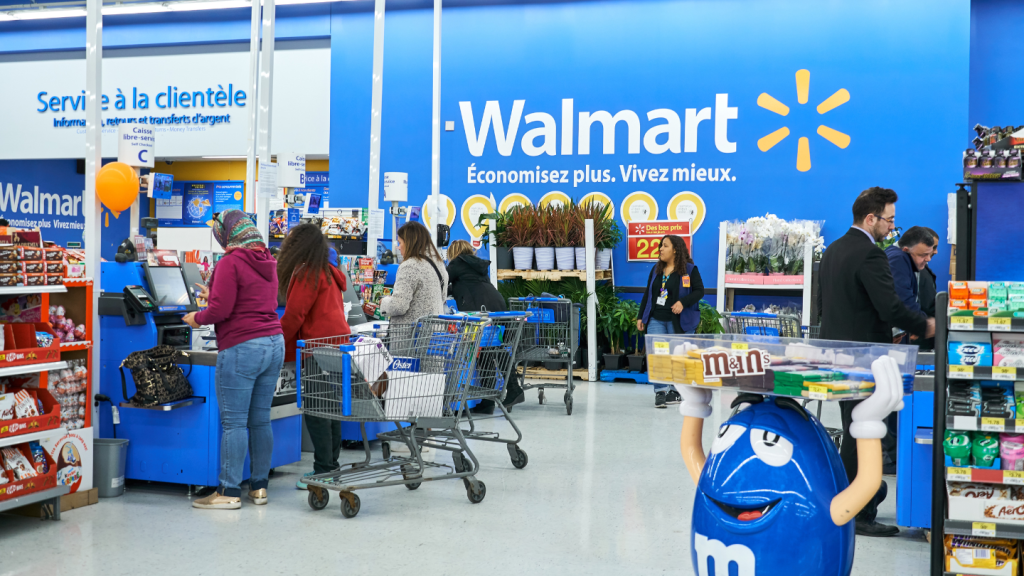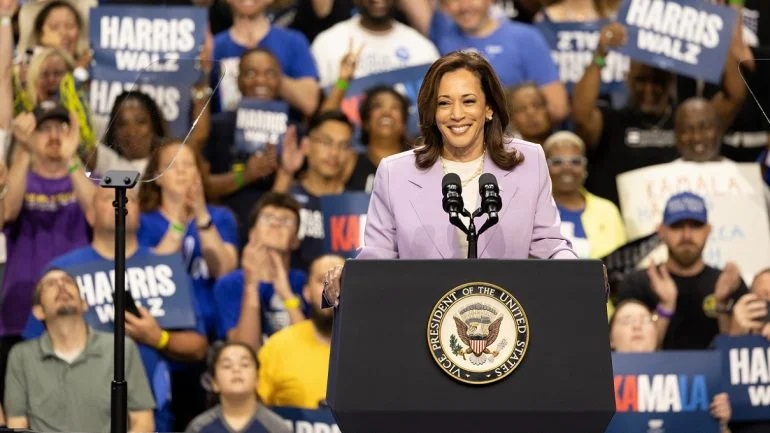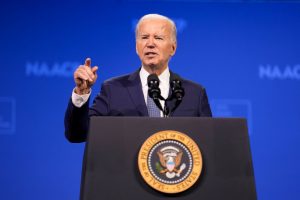
Harris’ proposal was intentionally vague for political reasons but the pushback has been so strong that she needs to clarify the plan or drop it.
Democratic presidential nominee Kamala Harris needs to clarify her proposal to ban food and grocery companies from “price gouging” or drop it altogether.
Harris’ plan, which she announced earlier this month and is extremely short on details and specifics, would create the first federal ban on food “price gouging”, giving the Federal Trade Commission (FTC) the power to prosecute companies that “excessively” increase prices.
The proposal was part of a broader economic policy presentation in which Harris said she would, if elected, target “bad actors” among food and grocery companies artificially inflating prices to expand their profit margins.
Harris is a lawyer by trade and a career prosecutor, having served as California’s Attorney General and before that as the District Attorney of San Francisco. Both are elected positions.
Behind the “price gouging” proposal
Grocery prices in the US remain 20% higher overall than before the pandemic. Whether or not big companies and grocery retailers are to blame rather than inflation is the issue that’s motivating the proposal.
The FTC, which is led by Lina Khan – as well as members of the progressive wing of the Democratic Party, led by Sen. Elizabeth Warren and Sen. Bernie Sanders – argue that some food and grocery companies are “price gouging” consumers, having raised prices beyond what inflation has necessitated in order to increase their corporate margins and profits. They often refer to it as “greedflation.”
My analysis based on her proposal, which I think is intentionally short on specifics, is that Harris has embraced this view, which isn’t shared by many Democrats in Congress and leaders in the Democratic Party. President Biden, for example, hasn’t proposed such legislation, nor has he voiced support for a federal anti-“price gouging” ban.
A related major industry development, the proposed merger between big grocery retailers Kroger and Albertsons, is also behind the federal ban on “price gouging” proposed by Harris.

The FTC and nine state attorneys general oppose the $24.6bn deal on antitrust grounds and have filed a lawsuit against the grocers, saying a combined Kroger-Albertsons will result in higher prices to consumers, less competition in the grocery retail industry and job losses for employees. Sen. Harris and Sen. Sanders support the FTC action.
Kroger, which is acquiring Albertsons in the deal, says the opposite; that the merger will result in lower prices to consumers and higher wages for employees because it will better position the supermarket format retailer to compete against mass retail giants like Walmart and Costco. Kroger recently pledged to lower prices on thousands of SKUs once the merger is completed. The hearing on the lawsuit got underway this week in the US District Court in Portland, Oregon. Four other attorneys general believe the transaction should go ahead.
“Price gouging” and price controls
The vague proposal by Harris has set off a flurry of speculation about a federal “price gouging” ban and what it might mean, including whether or not the Democratic candidate intends to propose price controls, which is something former Republican President Richard Nixon tried in the early 1970s. It failed miserably.
California, New York, Texas and 35 other states have anti-“price gouging” laws that prohibit companies from jacking up prices during emergencies like natural disasters and pandemics. These laws were triggered in the pandemic and some states took action against companies for “price gouging.” Companies have the right under these state laws to defend themselves, demonstrating that they increased prices because their costs went up.
For example, in New York, Tyson Foods is still fending off a civil probe looking into pandemic “price gouging.” Other states like Tennessee and Florida went after businesses that marked up hand sanitiser and PPE.
Some of these state “price gouging” laws explicitly prohibit price hikes above a certain threshold, anywhere from 10% to 25%. Others have more subjective language, using terms like “egregious” or “unconscionable” price increases. These laws are enforced by state attorneys general or local district attorneys.
Harris’ proposed federal ban on “price gouging” is more political than it is policy.
Sen. Warren has a draft bill banning “price gouging” nationally. Based on my reporting, it is something similar to this that I think Harris has in mind rather than price controls.
Harris is too smart and politically savvy to try something as foolish as price controls and a bill proposing it would never pass in Congress. The majority of Democrats in both the House and the Senate would even oppose it.
However, a watered-down version of Sen. Warren’s draft bill on “price gouging” might gain some support from Democrats in Congress, although based on recent comments in the press and elsewhere from Democrats in leadership positions, I doubt if it would even pass. Republicans would oppose it strongly.
The politics of inflation
The US has suffered its worst bout of inflation during the Biden-Harris administration. Grocery prices remain high, having increased by 25% since 2019, and Americans aren’t happy about it. Profits of some food companies and publicly-held grocery chains have increased over this same period, which has led many consumers to believe companies have raised prices above what their increased costs due to inflation have required.
There’s no evidence to date though that food prices have risen because food companies and grocers are “price gouging” consumers. For example, a new study from the New York Federal Reserve Bank says companies’ rising profit margins aren’t to blame. Instead, higher grocery prices are due to food inflation, higher costs for producers and employee wage increases.
The double-digit increase in the cost of groceries during the Biden Administration is a major challenge for the Harris campaign and, in my analysis, the candidate’s proposed federal ban on “price gouging” is more political than it is policy – it’s a way for the candidate to demonstrate to the American people that she plans to fight to bring down prices at the grocery store.
Pushback
The “price gouging” proposal though, which was only a small part of an overall economic policy speech, is turning out to be bad politics for Harris and the Democratic Party.
Democrat leaders both in and out of Congress are pushing back on the proposed “price gouging” ban, telling political publications of record like The Washington Post and Politico that such a proposal doesn’t have a chance of passing in Congress.
Many of these Democrats are also reaching out to their supporters and campaign donors in the food and grocery industry, letting them know the same thing.
Economists, including Democrats like Jason Furman, a top economist in the Obama administration, are also criticising Harris’ plan.
“This is not sensible policy and I think the biggest hope is that it ends up being a lot of rhetoric and no reality,” Furman told the New York Times. “There’s no upside here, and there is some downside.”

The food and grocery industry is also hitting back, particularly through powerful trade organisations like the Food Marketing Institute (FMI) and the National Grocers Association (NGA).
All this pushback comes even though the proposal from Harris is short on details and specifics. In other words, there seems to be a general feeling that the whole concept makes very little sense, or, as the NGA said in a statement, that calling for a ban on “price gouging” “is a solution in search of a problem”.
Problems and solutions
Harris should clarify her plans on “price gouging” immediately and, if she still plans to propose legislation on a federal ban, needs to come out with a detailed and specific proposal.
I think the early August proposal was intentionally vague for political reasons – even so Donald Trump slammed her plan as being “Communist” – but the pushback has been so strong that she needs to either clarify it or drop it altogether.
Inflation is moderating significantly and so is the growth in the increase in grocery prices.
Prices for all food are predicted to increase by 2.2% in 2024, according to the US Department of Agriculture. Food-at-home prices (defined as grocery store or supermarket food purchases) by only 1%, while food-away-from-home prices are expected to rise by 4.3%.
In 2025, prices for all food are predicted to grow 2%, with food-at-home prices expected to increase 0.7% and food-away-from-home prices expected to inch up 3%.
Prices on many food items also are beginning to come down to a certain degree. For example, last week Walmart CEO Doug McMillon announced the retailer is reducing prices on over 7,000 SKUs across all consumables categories.
That Americans are paying 25% more at the grocery store today compared to 2019 is a serious issue that both the US government and the food and grocery industry need to address, preferably in a partnership kind of way rather than as adversaries, although true “price gouging” should be condemned and investigated and prosecuted using existing laws.
A federal anti-“price gouging” ban like those that 38 states already have probably isn’t going to result in any significant damage to the food and grocery industry but it isn’t the answer to what has primarily caused the dramatic increase in food prices since 2019, which has been inflation.
You can now read the most important #news on #eDairyNews #Whatsapp channels!!!
🇺🇸 eDairy News INGLÊS: https://whatsapp.com/channel/0029VaKsjzGDTkJyIN6hcP1K





















